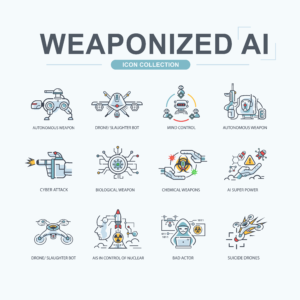By Virginia Portillo, Horizon Digital Economy Research
The way I think and feel about responsible innovation (RI) has evolved throughout my research career. During previous postdoctoral posts in stem cell research, I took on board research responsibilities beyond experimental work and became very interested in research ethics, governance and stakeholder engagement activities. Anticipating and being responsive to stakeholders needs fed into the preparation of a successful research ethics application and supported clear communication and a two-way collaboration with Wythenshawe Hospital Manchester University NHS Foundation Trust. Stakeholder involvement was key to the research as it supported our team with vital biological samples throughout the lifespan of the project. Whilst I enjoyed my lab-based research and contributing towards the knowledge base in that pioneering area, I felt there was something missing for me. I found the lag between translating fundamental scientific research findings into practice to support influencing change difficult . That feeling combined with my motivation in ethics and human rights, influenced my interest in joining Horizon – a multidisciplinary centre of excellence for Digital Economy research at the University of Nottingham.
How unbiased, trustworthy and responsible autonomous systems should look like to address citizen needs?
Throughout my time at Horizon, my interest in understanding the impact of digital technology in people’s everyday lives has grown. As part of my research, I have put forward citizen’s recommendations by responding to calls from the UK Government and regulatory bodies to guide the development and governance of responsible digital technologies. Stakeholder engagement – in all projects I have been involved in – has been key to co-creation and has played a vital part in contributing towards influencing policy change for social good. These are concrete, tangible examples of why I am interested in responsible innovation and see the value of putting it into practice in all projects.
I believe that to champion RI it is important to find out how practitioners – researchers/innovators/research support staff – articulate and integrate it in their projects, to identify possible facilitators and barriers and to support RI implementation. This has been part of our work in the hoRRIzon projects, and has informed the development of Responsible Research and Innovation (RRI) Prompt and Practice Cards, to facilitate discussion about priorities for RI within a research project/innovation process. I am mindful nuances of RI practice may be linked to the particularities of the innovation(s) and/or research discipline(s), and this is another reason why I am interested in RI, as there is no one recipe that fits all.

Poster presented at the Festival of Science and Curiosity
public event at Mansfield Museum, 17th Feb 2023
Last but not least I am interested in including the public in discussions about what socially desirability means to them. Who is to decide? Do citizens care? Are they aware their voices are of value to researchers/innovators? What can they gain by involvement? How best can we reach out and make that process sustainable? These are just some exemplary questions that further drive my motivation in this area and encouragement for underrepresented voices to be an integral part of RI.
I am excited to be part of the Responsible Digital Futures group, willing to share my experiences and perspectives and look forward to the opportunities this interdisciplinary group will bring.

